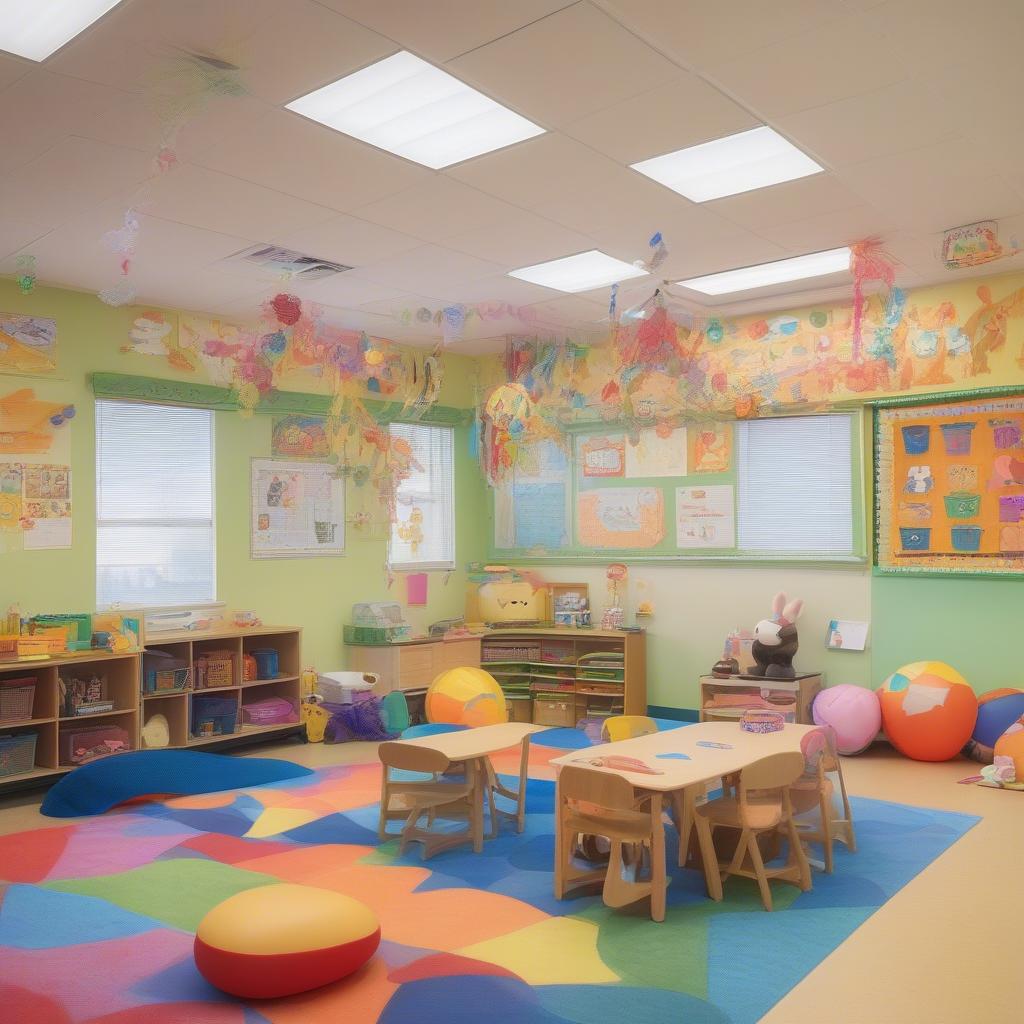“Honey, do you want to go to school?” A familiar question every parent has asked their child. For preschoolers, going to school is a completely new experience and can be daunting, even frightening. So how do you make children love school and be excited to go every day?
Create a Fun and Engaging Learning Space
Utilize Creative Colors and Appealing Images
According to preschool education expert Nguyen Thi Lan, author of the book “Preschool Parenting Secrets,” colors and images play an important role in attracting children’s attention. Using bright, vibrant colors like red, yellow, and green will create a cheerful and energetic atmosphere in the classroom. In addition, funny wall paintings, colorful toys, and vivid illustrations will stimulate curiosity and help children absorb knowledge more easily. 
Leverage Music, Nursery Rhymes, and Folk Songs
Music has a positive impact on the development of preschoolers. Fun songs, soothing melodies, and lullabies will help children relax and feel comfortable, while also stimulating creativity and language skills. 
Encourage Children to Participate in Hands-on Activities
Young children are often very active and curious. Encourage them to participate in hands-on activities such as role-playing, games, drawing, clay modeling, baking, etc. These activities not only help children have fun and relax but also help them develop motor skills, logical thinking, creativity, and communication skills. 
Build a Friendly Relationship Between Teacher and Child
Always Show Love and Care
Young children are very sensitive to loving and caring gestures. Teachers should spend time talking, playing, hugging, and caressing children to create a sense of security and trust. Show care with questions, compliments, and thoughtful gestures so children can feel loved, thereby integrating and loving school.
Understand Children’s Psychology and Communicate Effectively
Each child is a unique individual with different personalities and interests. Teachers need to spend time observing and understanding the psychology of each child to have appropriate communication methods. Talk to children in simple, easy-to-understand language, using stories and examples that are close to their lives. Always know how to encourage and motivate children when they encounter difficulties, creating a sense of confidence and love for learning.
Tap into Children’s Curiosity and Learning Abilities
Integrate Knowledge into Games and Activities
Young children learn most effectively through games and activities. Turn dry lessons into exciting games, fascinating stories, and fun activities. Integrate knowledge into games, creating opportunities for children to explore and learn on their own, thereby helping them remember knowledge more easily.
Encourage Children to Explore and Discover Freely
According to the Vietnamese concept of “everything has a reason,” every action and event has certain causes and consequences. Give children the opportunity to explore, discover, and experiment freely, helping them develop positive thinking, self-confidence, and problem-solving skills.
Connect with Families to Create a Positive Learning Environment
Share Information and Education Plans with Parents
Teachers should regularly contact parents, sharing information about their child’s learning progress and activities at school. Work with parents to develop appropriate education plans for children, creating consistency in parenting at home and at school. This will contribute to enhancing teaching effectiveness and helping children feel secure and at ease when going to school.
Create Opportunities for Parents to Participate in School Activities
Parents are also the first teachers of children. Create opportunities for parents to participate in school activities, such as teacher appreciation day celebrations, talent shows, etc. This will help parents better understand their child’s learning environment, as well as contribute to creating a bond between family and school.
Conclusion
Making learning exciting for preschoolers is an important task that requires dedication and creativity from teachers, and active support from families. Let’s work together to create a fun and engaging learning environment for children, helping them love going to school and develop comprehensively. You can learn more about other articles on our website, such as “How to Maintain Personal Hygiene for Preschoolers” or “Fairy Tales for Preschoolers,” to get more effective parenting tips.